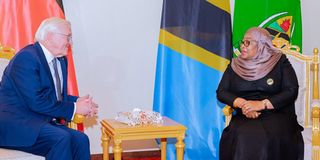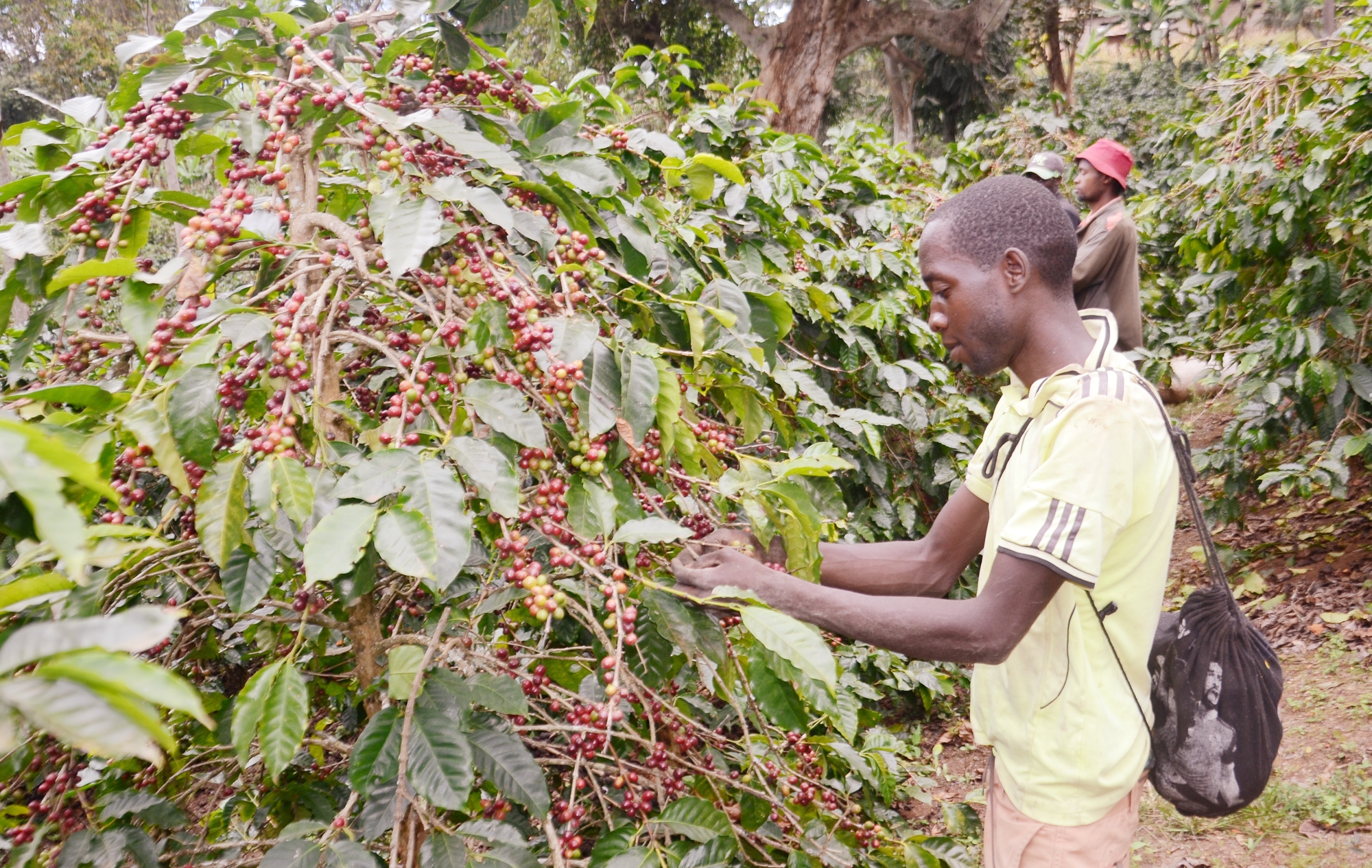Tanzania, Germany to discuss possible return of freedom fighters’ remains

President of the Federal Republic of Germany, Mr Frank-Walter Steinmeier, and President Samia Suluhu Hassan at the state house today, October 31, 2023. PHOTO | STATE HOUSE
What you need to know:
- The MajiMaji uprising took place from 1905 and 1907 in southern Tanganyika against German colonial rule.
Dar es Salaam. Tanzania and Germany have agreed to embark on talks about the possible return of the remains of people killed during the struggle against German colonial rule.
This is one of the aspect of the talks, which will centre on various issues related to German colonialism in Tanganyika in the early 20th century.
Speaking in Dar es Salaam on Tuesday during a joint press briefing with visiting German President Frank-Walter Steinmeier, President Samia Suluhu Hassan said Tanzania was ready for the talks, which she described as critical in the two countries’ efforts to further strengthen bilateral relations.
“There are families that are still waiting for the remains of their beloved ones, which are currently at various museums in Germany,” she said.
President Hassan added that the dialogue would not only shed light on the past, but also lay the foundation for further strengthening of the cordial relations between the two countries.
President Steinmeier expressed Germany’s commitment to acknowledging injustices of the past and working together to build a brighter future.
“That is why during this visit we also plan to visit the MajiMaji Memorial Museum, meet some of those affected and also listen to their stories, which we will take back to Germany,” he said.
The MajiMaji uprising took place from 1905 and 1907 in southern Tanganyika against German colonial rule.
Tanganyika was then part of German East Africa, which also included present-day Rwanda and Burundi.
Tanzania and Germany also agreed to explore new possibilities for expanding cooperation and bilateral relations in key economic sectors.
President Hassan said Tanzania was ready to host talks next year on development cooperation, which would explore how the two countries could boost trade ties.
“There is significance in stimulating business and investment for socioeconomic growth. There are currently at least 178 German projects in Tanzania, but we can do more,” she said.
According to President Hassan, during their 60 years of cooperation, the two countries have closely collaborated in various areas, including health, water, agriculture, education through scholarships, vocational training, defence, sports and entertainment, natural resources, environment and financial governance.
“Representatives of the two countries have been discussing how to strengthen the existing cooperation in various sectors and identify new areas of partnership.”
President Steinmeier said Germany was committed to fostering diplomatic relations and cooperation in key global matters such as innovation and the transition to renewable energy sources.
“We are currently improving the use of renewable energy to reduce carbon emissions. We we are willing to exchange experience on renewable energy,” he said.




